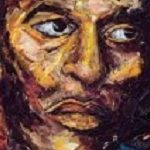
PADKOSA Fanomenal Padkos Event This is the first hamper of ’padkos’ in a menu of servings leading up to a feast on May 30th when CLP hosts a number of thinking militants engaging the politics of Frantz Fanon. Frantz Fanon died fifty years ago but his radical humanism remains as rich, powerful and relevant as ever. A fighting thinker and a thinking fighter, Fanon’s written work emerges out of his deep involvement in popular struggle against racist colonialism and oppression, and for genuinely humanising emancipation. To mark the anniversary of his death, and to engage the legacy of his life and work, CLP has invited some of the world’s and South Africa’s leading radical and Fanonian scholars and activists to present, debate and discuss with us. It will all happen on 30th May 2011 on the Pietermaritzburg campus of the University of KwaZulu-Natal. The Frantz Fanon Prize is awarded annually by the Caribbean Philosophical Association. In 2009, Nigel Gibson was a recipient in recognition of his « overall body of work in Frantz Fanon studies, which includes many essays and anthologies, including a recent set connecting Fanon’s thought to the shackdwellers’ movement in South Africa, and especially so for his influential book Fanon : The Postcolonial Imagination ». In the year marking the 50th anniversary of Fanon’s death, Gibson has been central to bringing out two new books exploring the life, legacy and relevance of Fanon’s work and politics. On May 30th, Nigel will be joined by an extraordinary group of writers, militants and thinkers from South Africa in Pietermaritzburg : S’bu Zikode, Richard Pithouse, Michael Neocosmos, Mabogo More, Itumeleng Mosala and Bishop Rubin Phillip. For us this discussion is a practical matter – a question of praxis and living politics : what are the ways in which Fanon’s radical humanism and fighting spirit might still be relevant, helpful and challenging for the praxis of people engaged in, or connected with, grassroots emancipatory struggle here and how ? As the Church Land Programme, we are also interested to explore an important historical line connecting Fanon’s work with black theology, black consciousness and emancipatory struggles in South Africa. This history is important, and often sidelined or misrepresented in hegemonic narratives of struggles in our country. Even more important though, is the relevance and power of that tradition for current emancipatory struggles. There are those who resist oppression, and who continue to find God in the liberated minds and actions of grassroots rebellion. They demonstrate how faith and fidelity must always find expression through concrete and costly solidarity with the risen Christ in the midst of those struggles. Between now and that event at the end of May, CLP’s padkos mailings will share some fantastic resources, most of which have been generated in the process of publishing these new books : |
|
|
|
David Ntseng introduces : Peter Hallward, « Fanon and political will’Engaging the life and work of Fanon is in itself a reverberation of the struggle for a more equal and just society. It is also a call to embark on a radical process to reflect on the shifting sands that make our society lose balance as it wiggles its way towards freedom. Helping us to frame the lenses, we are introduced to the first two articles by Peter Hallward and Michael Neocosmos. In this first serving in the series, Peter Hallward looks at Fanon’s work and life as it is reflected in his emphasis on the political will of the people. He takes us through Fanon’s confidence in the people who are actively cultivating their own political virtue with the will to self-emancipate (Hallward, 2010). The will of the people only makes sense and is achievable if it is led and shared by the people themselves. It is the people who hold the key, marching to a new political destiny where everybody matters. Argued from varying angles, both Hallward and Neocosmos (in the next padkos serving) refute the idea that the state, the party or the heroic leaders are the possessors of the emancipatory project. Neocosmos’ concept of subjectivation, like Hallward, directs us to the logic of ordinary people, beyond barriers of race, gender, nationality and class as being the right place to help us learn and participate in the project of true freedom. |
|

